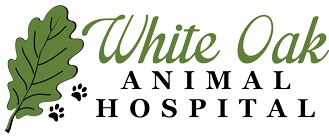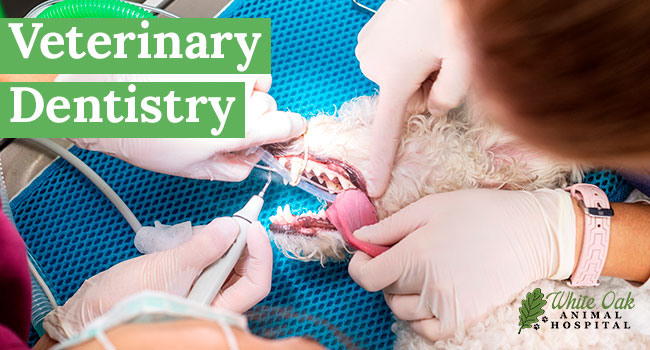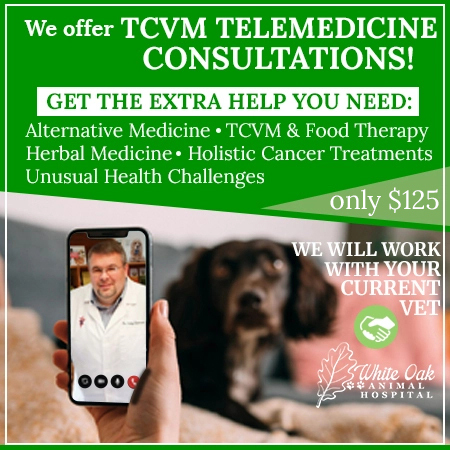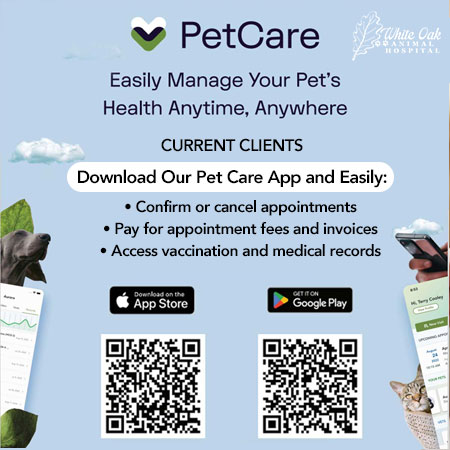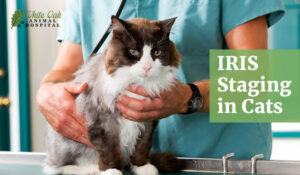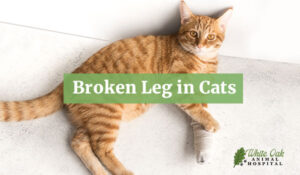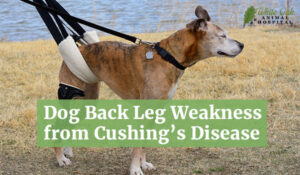Veterinary Dentistry Services at White Oak Animal Hospital
White Oak Animal Hospital prioritizes veterinary dentistry to maintain your pet’s oral health. Our veterinary dentistry services for dogs and cats are designed to keep their teeth and gums in optimal condition, ensuring their overall well-being and quality of life.
Why Veterinary Dentistry Matters
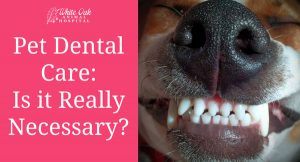 Like humans, pets require regular dental care to prevent dental issues such as plaque buildup, tartar accumulation, gum disease, and tooth decay. Neglecting dental health can lead to discomfort, pain, and even systemic health problems for your furry companion. Routine dental care improves your pet’s oral hygiene and overall health and longevity.
Like humans, pets require regular dental care to prevent dental issues such as plaque buildup, tartar accumulation, gum disease, and tooth decay. Neglecting dental health can lead to discomfort, pain, and even systemic health problems for your furry companion. Routine dental care improves your pet’s oral hygiene and overall health and longevity.
Our Veterinary Dentistry Services
White Oak Animal Hospital offers comprehensive veterinary dentistry services tailored to each patient’s unique needs. Our experienced veterinarian and trained staff utilize advanced techniques and equipment to provide the following services:
Dental Examinations
During a standard dental exam, Dr. Damron and staff thoroughly assess your pet’s oral health, checking for signs of dental disease, tooth decay, or other abnormalities.
We examine the teeth, gums, and oral cavity to detect any issues early on, allowing for prompt treatment and prevention of further complications.
Dental Cleanings
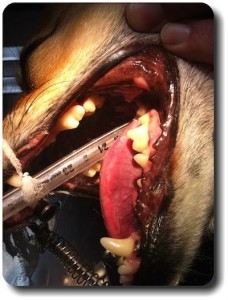 Professional dental cleanings are essential for removing plaque, tartar, and bacteria buildup from your pet’s teeth.
Professional dental cleanings are essential for removing plaque, tartar, and bacteria buildup from your pet’s teeth.
Using safe anesthesia and specialized tools, we clean above and below the gum line to ensure thorough cleaning and reduce the risk of periodontal disease.
Treatment for Dental Conditions
If dental issues are detected during the examination, we provide tailored treatment plans to address them effectively.
From tooth extractions to periodontal therapy, Dr. Damron is skilled in performing various dental procedures to restore your pet’s oral health.
Schedule Your Pet’s Dental Exam Today
Don’t wait until dental problems arise. Schedule a comprehensive dental exam for your dog or cat at White Oak Animal Hospital today. Our compassionate team is dedicated to providing high-quality veterinary dentistry services to keep your pet smiling, bright, and healthy. Contact us to book an appointment or to learn more about our dental care offerings. Your pet’s oral health is our priority.
Remember, a healthy smile leads to a happy pet!
People Also Ask:
Why is dental care important for my pet?
Dental care is crucial for pets to maintain good oral health and overall well-being. Without proper dental hygiene, pets can develop plaque, tartar, gum disease, tooth decay, and other dental issues that can lead to pain, discomfort, and systemic health problems. Regular dental care helps prevent these issues and promotes your pet’s healthier, happier life.
How often should I have my pet’s teeth checked by a veterinarian?
Having your pet’s teeth checked by a veterinarian at least once a year is recommended. However, the frequency may vary depending on your pet’s age, breed, and overall dental health. Some pets may require more frequent dental exams, especially those prone to dental problems or those with existing dental issues.
What are the signs of dental problems in pets?
Signs of dental problems in pets may include bad breath, swollen or bleeding gums, difficulty chewing, drooling, pawing at the mouth, loose or missing teeth, changes in eating habits, and reluctance to play with chew toys. If you notice these signs, you should schedule a dental exam for your pet immediately.
Is anesthesia necessary for dental procedures in pets?
Yes, anesthesia is typically necessary for dental procedures in pets to ensure their safety and comfort. Anesthesia allows veterinarians to perform thorough dental cleanings and treatments while minimizing stress and pain for the pet. Our veterinary team carefully monitors pets under anesthesia to ensure their well-being throughout the procedure.
How can I maintain my pet’s dental health at home?
You can maintain your pet’s dental health at home by brushing their teeth regularly with pet-safe toothpaste and a soft-bristled toothbrush. Dental treats or toys should also be provided to promote chewing and reduce plaque buildup. Establishing a dental care routine early in your pet’s life and scheduling regular professional dental cleanings with your veterinarian is essential.
What should I expect during my pet’s dental cleaning appointment?
Our veterinary team will thoroughly examine your pet’s oral health during your dental cleaning appointment. Then, your pet will undergo a professional dental cleaning, during which we’ll remove plaque, tartar, and bacteria from their teeth and below the gum line. The procedure is performed under anesthesia to ensure your pet’s comfort and safety. When you pick your pet up, we’ll explain what to expect after the dental cleaning and anesthesia and any other details of the procedure specific to your pet.
What are the benefits of dental cleanings for my pet?
Dental cleanings help prevent dental disease by removing plaque, tartar, and bacteria from your pet’s teeth and gums. They can also reduce the risk of other health problems, such as periodontal disease, tooth decay, and systemic infections affecting the heart, liver, and kidneys.
How can I help my pet recover from a dental procedure at home?
To help your pet recover comfortably at home, provide soft food and fresh water, and avoid hard chew toys or treats for a few days. Administer any prescribed medications as directed and monitor your pet for signs of complications, such as excessive bleeding or difficulty eating.
What are some signs that my pet may need an emergency dental appointment?
Signs that may indicate the need for an emergency dental appointment include severe pain, swelling of the face or mouth, excessive drooling, bleeding from the mouth, broken teeth, or trauma to the mouth. If you notice any of these signs, contact your veterinarian immediately for guidance.
